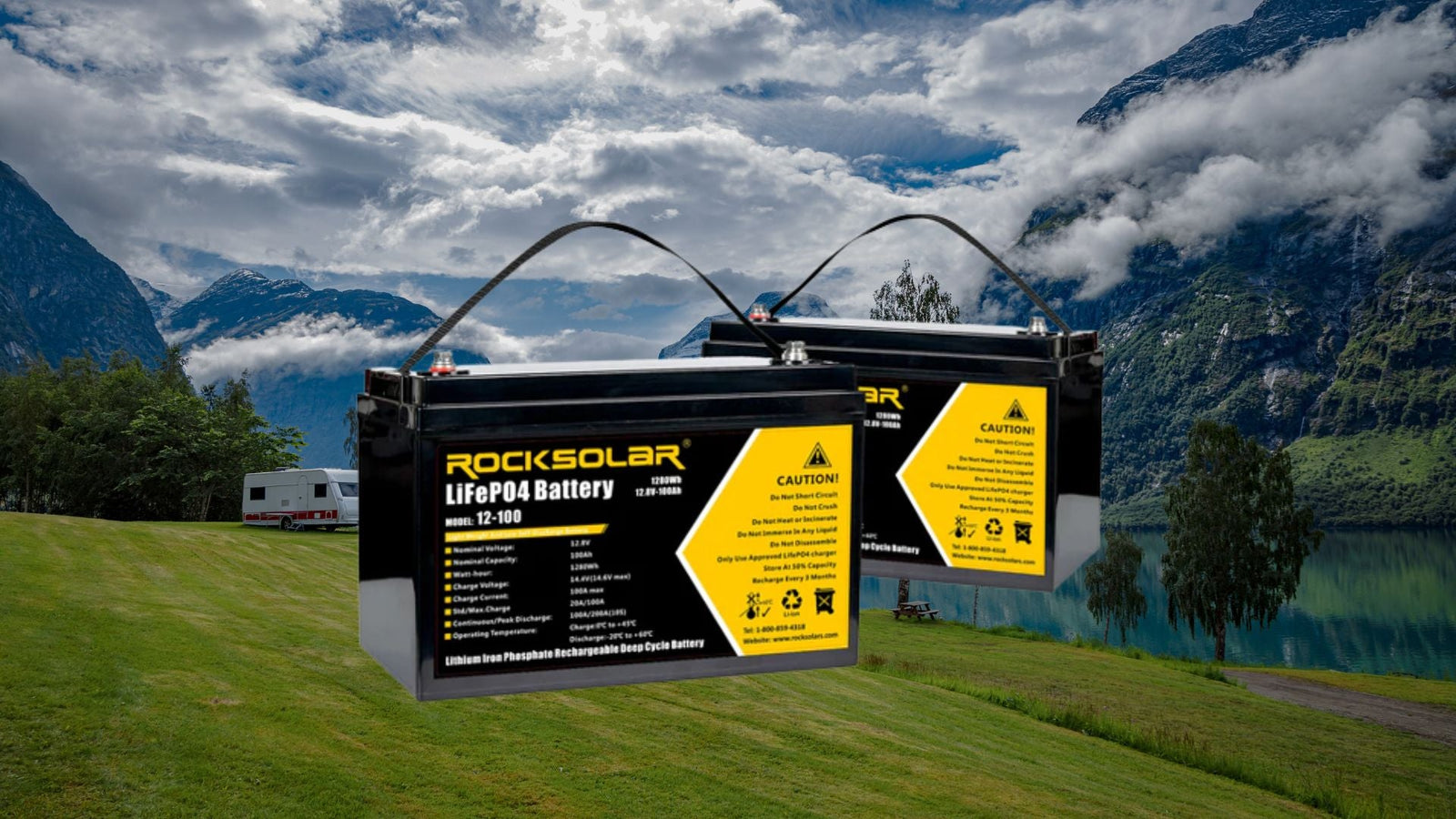As we step into an era of green energy solutions, the adoption of sustainable and efficient energy storage systems has become critical. One prime example is the innovative battery technology known as Lithium Iron Phosphate (LiFePO4). In this blog post, we'll shed light on the advantages of Rocksolar's LiFePO4 batteries compared to traditional Lead Acid batteries.
Understanding LiFePO4 and Lead Acid Batteries
Before diving into comparisons, it's crucial to understand the fundamental differences between LiFePO4 and Lead Acid batteries.
LiFePO4 Batteries
LiFePO4 stands for Lithium Iron Phosphate, representing the chemical composition of this battery type. One of the critical advantages of these batteries is their safety - LiFePO4 batteries have excellent thermal and chemical stability, reducing the risk of battery failure.
Lead Acid Batteries
Lead Acid batteries have been around for centuries, powering everything from cars to industrial equipment. They are reliable, easy to use, and cheap to manufacture. However, their weight, inefficiency, and environmental concerns have started to outweigh their benefits in the modern age.
Comparison: Rocksolar's LiFePO4 vs. Lead Acid Batteries
1. Energy Efficiency
LiFePO4
Rocksolar's LiFePO4 batteries have higher energy efficiency compared to Lead Acid batteries. They can deliver 90-95% of their energy, making them an ideal choice for applications demanding high power.
Lead Acid
In contrast, Lead Acid batteries typically offer an energy efficiency of 80-85%. While this might seem close, the gap becomes significant when dealing with high-capacity applications.
2. Life Span
LiFePO4
With up to 2000-5000 cycles, Rocksolar's LiFePO4 batteries have a significantly longer lifespan than their Lead Acid counterparts. This longevity reduces the need for frequent replacements, providing a more cost-effective solution in the long run.
Lead Acid
On the other hand, Lead Acid batteries usually last for about 500-1000 cycles. The frequent replacements not only contribute to higher costs but also increase the environmental impact.
3. Environmental Impact
LiFePO4
LiFePO4 batteries are environmentally friendly, containing no harmful heavy metals. Moreover, their longer lifespan means fewer batteries end up in landfills, leading to a smaller environmental footprint.
Lead Acid
In contrast, Lead Acid batteries contain toxic lead and acid, posing a severe environmental hazard. Their disposal needs to be carefully managed to prevent contamination.
Choosing between LiFePO4 and Lead Acid batteries often comes down to your specific needs and environmental consciousness. While Lead Acid batteries may seem like an economical choice initially, Rocksolar's LiFePO4 batteries' benefits, such as longer lifespan, higher energy efficiency, and eco-friendliness, often make them the more cost-effective and responsible choice in the long run.
Consider exploring Rocksolar's range of LiFePO4 batteries, each offering unique features for different power needs:
- Rocksolar 12V 18AH Deep Cycle LiFePO4 Battery
- Rocksolar 12V 50AH Deep Cycle LiFePO4 Battery
- Rocksolar 24V 100AH Deep Cycle LiFePO4 Battery
- Rocksolar 12V 200AH Deep Cycle LiFePO4 Battery
- Rocksolar 12V 10AH Deep Cycle LiFePO4 Battery
- Rocksolar 12V 100AH Deep Cycle LiFePO4 Battery
Frequently Asked Questions
Q1. Can I replace my Lead Acid battery with a LiFePO4 battery?
Yes, you can usually replace a Lead Acid battery with a LiFePO4 battery. However, you should always check the manufacturer's guidelines to ensure compatibility.
Q2. Are LiFePO4 batteries worth the cost?
While LiFePO4 batteries may cost more upfront, their extended lifespan, higher efficiency, and environmental friendliness often make them a cost-effective solution in the long run.
Q3. Are LiFePO4 batteries safe?
Yes, LiFePO4 batteries are one of the safest types of Lithium batteries due to their high thermal and chemical stability.
Q4. How should I dispose of my old Lead Acid batteries?
Due to their toxic content, Lead Acid batteries should be disposed of at a local recycling facility or a battery recycling program.
